In Mira Nair’s ‘Monsoon Wedding’ more than a decade ago, perhaps the most endearing moments of the film take place during a charming little love story blossoming amidst the chaos. They occur in the many bashful silences between the foul-mouthed, soft-hearted wedding planner P.K. Dubey (Vijay Raaz) and the Vermas’ shy servant, Alice.
There was something about the new face behind Alice; there was always something about the actress, who wasn’t to be seen on screen for many years after. She remained synonymous with that breakout, and only, role — until she wasn’t. Much has happened between those heady days on a chaotic film set, and her path-breaking, stunning role as Kanwar Singh in Anup Singh’s Punjabi-language film, Qissa. And much continues to happen.
This is the story of TILLOTAMA SHOME, an artist shaped by uncompromising decisions and fiery trials.
She speaks to an engrossed CHINTAN BHATT about her beginnings, her ‘disability’, Mira Nair, New York prisons, Dibakar Bannerjee, Q, Anup Singh, love and everything in between.
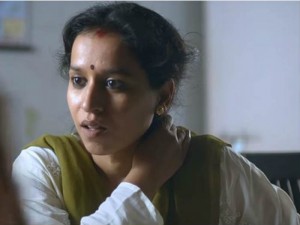
Thanks for talking to us. I’m not a professional journalist as such, so it’s tough to go beyond “having a chat”…
Oh, that’s okay. I’m not a professional at giving interviews either. We’re even.
Perfect. Let’s rewind a bit. Could you tell us about your world before Monsoon Wedding?
In my first year at LSR (Lady Shri Ram College, Delhi), I watched a play. That’s when I realised how magnificent this world truly was. For long, I felt like a bit of an anathema, because I had grown up with a stammer. This world of acting definitely represented all that was totally inaccessible for a girl who lived most of her school-life through monosyllables. A more forgiving person would have described me as ‘shy’ or ‘introverted’, and a more unforgiving person, as ‘arrogant.’
When you have a speech impediment, it affects your self-esteem. But I never felt sad or sorry for myself; I just thought that was normal. But when I saw that first play, it was the one time I genuinely wished that I didn’t have this impediment. Because it felt like such a fascinating universe — to be able to become someone else, and develop a kind of empathy. That’s how it all began.
And when you performed on stage, you stopped stammering?
After watching the first play, I knew that the ‘keeda’ had been activated. I wanted to do it, but wasn’t quite sure I could. Around the same time, I was introduced to a Buddhist philosophy which talks about the limitless potential of the human mind: What we think we know is just the tip of the iceberg, and the rest of it is unexplored. It was a language of hope, as opposed to deconstructing everything and tearing it apart, which was the mainstay of an English literature in LSR. It really gave me the hope to at least try. Acting is, after all, about taking action; if I didn’t take action about acting itself, it would beat the whole purpose. I picked out an audition call, and decided to try out for a silent character. I was so nervous while auditioning that my knees were shaking. So, I sat down instead, which gave me another dimension to play with. I got the part. The journey had begun.
As I started being on stage, even though it was a silent part, my body just bypassed the cops in my head that were telling me for so long that I can’t speak without stammering. I realised then that so much of our social conditioning is in fact just waiting to be demolished. The body was experiencing such freedom on stage. I stopped listening to those cops, and before I knew it, my stammer disappeared. For many, it would not be a big deal. But for me, it was huge — an act of defiance against a certain disability. I don’t think it’s changed much since then. Acting is still an act of defiance for me, to be able to do something that I feel I can’t do. Rarely have I gotten a part where I’m convinced that it’s easy. I’m always wondering how in the world I’m going to go about it. I always feel like it’s difficult, and that I don’t have enough time, no matter how much time I really have. That instinct of proving myself wrong still exists.
Tell me a bit about this theatre phase.
After my Bachelor’s degree at LSR in 1999-2000, when I had joined Asmita — the theatre company — I realised that my Hindi was quite poor. This was primarily because I had done 12 years of education in 7 schools. Shifting from one place to another, I had learned all those languages (Punjabi, Kashmiri, Kannada) and forgotten them after we moved. In Delhi and at Asmita, it had to be Hindi. Perhaps they didn’t mean it then, but there were a lot of snide English-medium taunts. I was constantly reminded that my vocabulary was limited, that I didn’t have formal training, and that even my accent was so “Bengali.”
So I decided to buy a Hindi-language book, Bhisham Sahni’s ‘Gulal ka khel’, a short story anthology for children. I decided I was just going to teach myself, and read it aloud to myself whenever I found the time. I treated it as yet another challenge, and yet another opportunity to not come up short. In a way, this whole Asmita phase had prepared me for my role in ‘Monsoon Wedding’, because I felt like I was constantly failing right up until I got the film. Perceptions may have changed after that, but honestly, nothing has changed. I’m still the same. Perhaps my language has gotten a little better, but it’s still a struggle. The film gave me more attention than ever, but I was aware how lucky I had gotten.
So Monsoon Wedding happened before you left for New York?
Yes. My plan to study a particular course in New York happened after my stammer went away, after those three years of doing plays in LSR. I thought it was really magical — what the body can do when fuelled by the mind. That’s when I discovered that there was this whole therapeutic component to performance art. The course in NYU was called ‘Drama Therapy’. Considering the middle-class family we came from, studying abroad on a retired Air Force Officer’s salary was unthinkable. But I was determined to embrace this desire to study and find out if what happened to me was an accident, or if it was a miracle, because it seemed like it was a teaching technique that helped me to overcome this so-called disability.
I looked up the course. It was headed by Chris Vine, a teacher who had done a lot of work in this field. But the course fees was some obscene amount of money. Putting together money for my TOEFL and GRE was extra expenditure for my father, so I started editing books for children’s fiction; I used to stand at Pragati Maidan in the heat to serve masalas to make extra cash; I served drinks at weddings in Gurgaon. Throughout, I kept thinking that I cannot die without having fulfilled my dream; I have much to do, so much to accomplish. I saved up money, gave the exams, and applied for the INLAKS national-level scholarship — a rare scholarship for the arts, and very competitive. After many rounds of interviews and eliminations, I got the scholarship.
While I was researching about how to get my life to New York, I figured that one needs 16 years of education to apply for a Master’s Degree. Our school system gives us 15 years. This meant I had to do one year of the degree here. I started preparing to give an in-depth entrance exam for my Masters in English Literature from DU. It involved a lot of studying. In the middle of all this, I got a call for the ‘Monsoon Wedding’ audition. I asked the casting director Dilip Shankar what the film was about. When he said it was about a Punjabi wedding, my first reaction was: I’m a Bengali, how will that work out? I googled ‘Mira Nair’, I didn’t know anything else she had done other than ‘Salaam Bombay’. Those days, you had to go to a cyber cafe even to spy on people like this. I discovered that she taught at Columbia, as did her husband. Columbia, New York and Harvard were the three top universities offering the course. This was my chance, I thought! I needed three letters of recommendation. If I did her film, she’d be one of them. I was only dreaming about the scholarship. [grins] So it was all very manipulative of me back then. That was why I was so excited about doing the film. I went for the audition. Mira and the writer Sabrina Dhawan were there. We started chatting, and I slyly slipped in right up that I was planning to study abroad, and of course, I mentioned Columbia first. I acted surprised when she said she teaches there. As it turned out, even Sabrina was a teaching assistant there. I couldn’t believe my luck — I could get all three letters at one go! When I asked her, she immediately agreed. I was so excited by then that I just stood up to leave, thrilled that my purpose had been served. I forgot that I had originally come there to audition for her film. As a result, I couldn’t focus too much on the actual audition.
Later, Dilip called to tell me that Mira thought there was something about me, but that I didn’t seem very interested. I didn’t know what to say. I knew that if I was really interested, I’d have given it my 100 percent instead of getting so emotional and distracted. When I went back again, I gave it my absolute best. Right after, she said that the part was mine. They had apparently auditioned 90 women for my part, across LA, Bombay and Delhi. Everything seemed fine. And when they told me about the dates, I told them I couldn’t do the film. I realised I had my entrance exams around the same time. Everyone was shocked. Everything was planned in a neat sequence in my head — Masters, Scholarship, NY Course — and this film had just sprung up out of nowhere. She requested me to postpone my DU year. Naively, I asked her if she could delay the film instead. Mira Nair had realised by then that little old Tillotama Shome was living in some innocent, idealistic world altogether.
Perhaps that was the innocence she saw for your role as Alice, the maid of the house…
Maybe. I would like to think I wasn’t too innocent through this. It was almost elaborately planned to reach an end goal. She asked me repeatedly if I was sure about this. I didn’t budge at all; I told her that this was the path I had chosen. I left with the usual polite departing remark: that if she made a film down the line, I’d love to be a part of it. I was even shameless enough to wonder out aloud if I’d get the letter of recommendation anymore. Thinking back, I can’t believe she didn’t throw me out. I started preparing for my MA. Fortunately, I didn’t have to go to a cyber cafe for my research anymore because my father bought us a desktop.
One day, I got an email from Mira Nair: “Tillotama darling, I hope you’re studying hard. The shoot has been postponed. Do well in your exams, and I will see you soon. I wanted to share with you the rest of the cast, which includes Naseeruddin Shah, Kulbhushan Kharbanda and others”. And here I thought she was making a film with those non-actor types, which is why I maybe didn’t take it too seriously earlier. I assumed there were more inexperienced, random people like me. After reading the email, I couldn’t believe I was being so casual. It would be such a privilege to work with them. What was I thinking?!
Eventually, however, it all worked out to my advantage. I gave my entrance exam, and was excited to do a 10-day workshop for the film. Those who couldn’t do it wouldn’t be part of the film. I bounced through the first day on adrenalin, and by the second, I had high fever. I called up Mira, who basically just told me to get well soon and not lose any more weight. But sick people tend to lose weight! Yet again, here I was, with everything going against me. And miraculously, it still worked out.
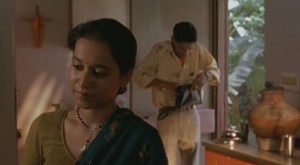 The best part is I was entirely myself through this phase; I was completely honest about my situation and my desires and aspirations. Fifteen years later, when my friends tell me about all those terrific exercises that Naseer does in workshops, it feels different. Back then, perhaps I didn’t see the value of these things as they took place. At the end of that first day, I genuinely felt like my head was going to explode — there was just so much to learn, so much to do, it was infinite. That urgent need and intense necessity to improve as an actor, and I hadn’t even begun. There were senior NSD graduates and trained actors at the workshop; I was so overwhelmed by this sudden outbreak of awareness that I just fell ill. Of course, in the end, Mira did write me my beloved letters of recommendation. And I did go to NYU, too.
The best part is I was entirely myself through this phase; I was completely honest about my situation and my desires and aspirations. Fifteen years later, when my friends tell me about all those terrific exercises that Naseer does in workshops, it feels different. Back then, perhaps I didn’t see the value of these things as they took place. At the end of that first day, I genuinely felt like my head was going to explode — there was just so much to learn, so much to do, it was infinite. That urgent need and intense necessity to improve as an actor, and I hadn’t even begun. There were senior NSD graduates and trained actors at the workshop; I was so overwhelmed by this sudden outbreak of awareness that I just fell ill. Of course, in the end, Mira did write me my beloved letters of recommendation. And I did go to NYU, too.
How was NYU?
I still do think that it’s a very expensive education, which makes it exclusive, which in turn beats the purpose of learning. It doesn’t need to be so costly. But Chris Vine, the teacher, definitely had a huge influence on me, both personally and professionally. His classes shaped me into who I am today — and that, you can’t put a price on. There were people in my course with way more experience than me; some were musicians, some dancers, and some with so many other skill sets. I realised I was the most sincere but the least accomplished of them. This experience helped me explore the feeling of failure extensively; you constantly wake up everyday and go to school, and fail at miming, or burlesque, or working with people who have mastered these crafts right from their childhood. Everyday, you feel like shit, you feel like you’re not good enough. Coming out of this experience, you realise how much these people have contributed to your life through osmosis; you’ve taken in so much by simply observing them.
After I graduated from NYU, I got a job with Creative Arts Team, the company in which Chris was an artistic director. I was put in a team that worked with domestic violence shelters and prisons. It really was hard, and again, I felt like I was starting from scratch. Even in prison, this influence of my teachers and classmates showed in my work. Of course, the audience there is far tougher — not quite the polite kinds who’d clap at the end. They’d stop you within the first minute if they found it boring or objectionable. We would enter class in character and do a dramatic piece, and then the participants would deconstruct it, and come in and change the story or play the protagonist. Process Drama is a very complex use of theatre to communicate things that are otherwise difficult to explain in a chalk-and-talk method. The key to this method is a powerful performance so that, no matter how cynical and jaded the audience is, they get sucked in by the drama and hence want to participate and talk about their lives. The success of a Process Drama is when these members actually take your place in the drama, and you sit and watch them. In life, you don’t get a second chance, so the idea of this therapy is to sit and rehearse for real life.
I had to be on the ball. “Hey, T, your accent is so thick,” they’d complain, for obvious reasons. That would make me feel like an outsider, a novice. But the joy of being an outsider is that you push yourself so hard — not so much to be accepted as to be understood. I worked there for more than two-and-a-half years. I learned more about life from prison than I did in school — more about performance, drama, timing and impulse. These inmates were serving time. Hence, their ability to observe life was so concentrated that one could learn so much from watching them work. When non-actors like them are put in such an extraordinary environment with people who have been accused of various crimes, you tend to see the backdrop of their stories — whether they were just unlucky, at the wrong place at the wrong time, or if they were victims of anger or passion. You listen to them and feel, ‘It could’ve been me.’ There’s such a fine line between sanity and insanity, between being in prison and out. It’s that respect for the thinness of this line that allowed me to really push myself to be a better facilitator.
After those few years, I remember getting up in the morning and not wanting to go to work. I was just emotionally tired. I noticed that the wardens — who would often send prisoners into solitary confinement if they got into fights — just had no expressions on their face. They dealt with it every day; it becomes mechanical for them. I didn’t want to turn into that. The situation is already so unfair, especially when you see the demographic of people there — barely any of them were white. Clearly, some of them just got a raw deal. They didn’t deserve a facilitator (like me) who’s coming in to ‘help’ them, without really not interested in it anymore.
I just wanted to come back and act in films. I had to respect those instincts of wanting to act again. I was watching the Indian films coming out at the time, and there were these new independent filmmakers like Vishal Bharadwaj and Rajat Kapoor. This wasn’t the case during ‘Monsoon Wedding’. Things had changed quite a bit.
Was there ever a temptation, then, after the success of the film, to ditch your NYU plan?
I remember Naseer telling me that this was career suicide, and that I should go to Bombay instead. I don’t think I was ready though. I would’ve only disappointed myself if I had moved here. I didn’t know enough. I felt like I was the odd one out there anyway, without training, like I didn’t deserve to be there. But the experience only made me hungry to learn more. And I’m not denying that I haven’t had my doubts. There were many times later in Bombay, where I felt like I had made a mistake. I wasn’t getting enough work, and I wondered about my decision. People knew me after the film, and I could have struck when the iron was hot, I could have ridden the romance and success of the character. But I’m convinced that, everything I learned at NYU and from my years over there working after that, was necessary. It felt like I was in a washing machine throughout. I don’t think I’d have been able to audition for roles the way I do now if not for my experiences there.
Acting is a profession and craft that demands instinct, and my instinct at that time was very strong about what I wanted to do. It was also the audacity of a middle-class family girl daring to dream so big, rather than a wide-eyed fascination of the Americas. No matter where the course was being taught, I’d have gone for it. The instinct to go was just as strong as the one I felt when I woke up one day and felt the unquenchable urge to act in films again. By the end, I wasn’t only tired of being a facilitator; I wondered if it was simply the fear of turning 30 and restarting my career so late that was actually keeping me behind. It was an honourable job, but I felt like I was hiding behind it by then. I was even offered a Ph.D by the university, but the Tillotama who wanted this academic career was no more. There was also the overwhelming feeling of injustice and hypocrisy by the systems there. America was very disenchanting for me in that sense. I made amazing friends and was exposed to the cream of the crop; there was still something about the country that wasn’t quite right. I missed home, and it was then that I watched ‘The Namesake’. There’s a scene where Tabu gets a call telling her that her mother has passed away. I thought about what I’d have to do if that happened to me; I’d have to apply for leave, book a ticket, sit on a 16-hour flight, grieve with the living parent, arrange the funeral, and then leave that parent alone and come back? It was simply time to come back home instead. I had done the best that I could. My desires had changed, or perhaps become the same again.
How was it like when you actually came back?
They say New York and Bombay are similar. But after working in a prison for so long, Bombay felt like heaven. I remember coming to the city during one of my vacations from New York, wanting to check out what the film scene was like. I ran back in 11 days. I didn’t even know how people get work here — was there a union, or is it only about socialising and networking? If so, then how would I do that? I had overcome a stammer, but essentially I was not sure whether I’m an extrovert or introvert. This profession has made me challenge my sense of self so much that, over time, the difference between where I started and where I am now is an amorphous mess. It was daunting back then, and New York felt safer.
But after my work there, Bombay felt like nothing, honestly. I have nothing to fear after the stories I’ve had the privilege of sharing and hearing there. It may be tough for an actress like me who looks the way I do, but there have been a few people who have seen through that and have given me a chance. I’m grateful to all of them — Dibakar Bannerjee, Anup Singh and other international filmmakers.
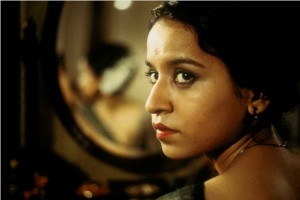
In ‘Shadows Of Time’
How did you find those Indo-European/Australian collaboration projects?
This will sound bizarre. But here goes. When I was waitressing and bartending in New York to earn some cash to travel to Europe, this man came in and recognised me from ‘Monsoon Wedding’. After finding out that I studied at NYU, he told me that he would get his wife next time because they were huge fans. I thought he was just fibbing, that he was just an eager Indian guy married to an American woman. They came next Wednesday, and every Wednesday after that. We just became friends. I had no idea what they did, but we just had great conversations. They would wait till I shut down and take me out. Then they started taking me out to plays, because they were members of Lincoln Centre — to the best shows, front-row seats. Those tickets were expensive, and they took me to meals at posh restaurants I would have never entered on my own. I started to get a little uncomfortable with their generosity. I told them so, because I’d never be able to repay them. That’s when he told me that he was the financial head of this big company (I won’t name it), and I was shocked. I had no clue; all that humility had kept us from talking about anything other than life and the lessons we had learned from it. They were such art enthusiasts. They didn’t have any contacts in the film industry, so all they could do was expose me to the work of artists they adored and admired. Which is why they took me everywhere. I’m unbelievably grateful, to this day. They used to tell me how much they believed in me and my talent. They made a website for me, and they have every newspaper clipping on me ever; they’ve even gone to great lengths to procure some obscure short films of mine. I guess that website made it possible for people to contact me by email. Just like that, I got an Australian international film within the first few months in Bombay. The casting director, Tess Joseph, was very open to newcomers without pedigree or credentials.
All in all, if you look at how everything panned out, you realise that you can’t plan these things in life. They just come together, or they don’t. Today, I even have a manager. But when I got here, it was really a world apart.
Is there a similarity in the kind of roles — its intensity, or perhaps a notion of victimisation — you’ve chosen so far? A pattern that you notice, that is far removed from what we usually see in ‘real’ Indian cinema?
Often, in my early films, I’d get cast as the Dalit woman or the disenfranchised poorer characters because of the perception of the maid, Alice from ‘Monsoon Wedding’. One realises then how classist we are as a society, where you continue to play the same face in many ways once the world sees you like that. This is fine if I can dignify the being of someone who is servicing the economy of our lives, but at some point, you begin to feel that, hey, there’s more to me than this. Despite that, I have enjoyed a fair variety of roles: In Gangor (2010), I played someone who was based on Medha Patkar’s character — it was about understanding the mechanics of her persona. In ‘Shadows Of Time’, I played a wife who knows that her husband is cheating; she was poor, then she becomes rich and then old, which covers a span from ages 18 to 40. Similarly, it was quite different in ‘Shanghai’ as well as ‘Qissa’. I honestly don’t feel like there is any pattern. If one looks closer, one will always find what they want to see. If there is any pattern at all, it’d be that I’m part of the so-called Independent scene in India. I’ve not chosen to be part of it; it has chosen me. I don’t want to be a flag-bearer of serious cinema, or indie and issue-based films. I just like challenging myself with roles that require me to learn and start all over again.
I’ve spoken to many actors here, and that is precisely the case with so many actors. They desire to do different and challenging work, but they don’t really end up walking the talk eventually…
You have to understand that there are so many people who come to this city to be an actor. It’s a cliche, but it’s true. It’s just about persistence, and about being stubborn at the right time. I feel like I have to just do my best with whatever comes to me. And eventually, the line between independent and commercial cinema will get blurrier. It won’t fade totally, but we will find our space.
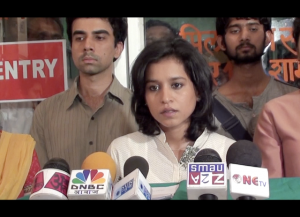
In ‘Shanghai’
The way you pulled off your character, Mrs. Aruna Ahmadi — the wife of a social academic played by Prosenjit Chatterjee — in Dibakar Bannerjee’s ‘Shanghai’ was remarkable. How did you go about it?
I thought I was fairly confident about my character after the audition with Atul (Mongia, casting director) and Dibakar. On the first day of shooting, there’s a scene where she is given the belongings of her husband by Kalki (who plays his follower and former student) after his ‘accident.’ I take it and I’m supposed to realise in that moment that this is the new woman in his life. I go to the bathroom, wash my face, take out his wallet, scream silently and cry without letting anyone hear. My role wasn’t a huge one, but this was one of the more dramatic individual scenes of the film. I had thought that I’d watch Dibakar work, settle into the surroundings, do some of the lighter parts, and prep for this scene that I was sure he’d shoot later into the schedule. But he wanted to start with this one itself.
So he began, “Okay, so you enter the bathroom this way. Open the tap, splash your face twice maybe, and the third time you should realise, as soon as you move the wallet to the other hand, that there’s blood on your wet hand.” I was like, hold on, can I just try it once and do it my way first? “No, this is exactly how I want it,” he declared. I felt so claustrophobic. Even the cameraman was being told exactly how to frame the scene. He knows exactly what he wants, and this was extremely uncomfortable for me because I had never worked with him before. He sensed this discomfort. We started talking, and he shared with me what he thought about Aruna Ahmadi: the things she could have done, how she could have walked out of this marriage, her husband likes talking and she likes doing, their worlds are so different, and she knew that, yet she kept on overlooking everything that led to this situation. He filled my head with this backstory of my character, and just talked to me about what could have been had she left him before and not waited for this moment of humiliation. I heard everything he said, and I went and did more or less exactly what he asked me to do, but this time I felt was doing it out of my own volition.
Dibakar’s style was so different from the others I had worked with, but it still worked. When an actor like me gets used to a certain way of working, someone like Dibakar comes along and changes that perception. I realised that he gave me so much to work with that I just internalised Aruna. It stopped mattering what I did physically, he just transported me to that world. It was a joy, but it started with such a growing sense of restriction.
Has it been different working on international productions, as compared to conventional Indian filmmakers?
To be honest, I don’t remember working with a conventional director here. Dibakar has his own voice and ways, marches to his own beat. But as far as the difference in the craft is concerned, there’s far more respect and dignity afforded to film technicians, right down to the caterers on set. Otherwise, I can’t speak about big commercial filmmakers, because I’ve never worked with them. I did a short film (for the recent ‘Love Shots’ web series) with YRF recently, and it was extremely refreshing. Maybe I just got lucky.
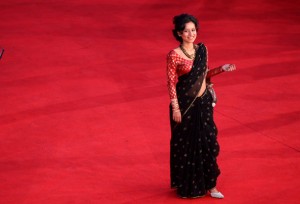
At Rome Film Festival for ‘Tasher Desh’
Do you like the process of auditioning?
I hate it, but I feel it’s important. Not all actors do it though. If you’re a successful star, directors hesitate to audition you because you might “get offended.” I don’t understand that culture here — that only the non-famous ones get auditioned, but the famous ones aren’t, even if the role isn’t something the director is sure of. But I know that for the part of Alice, Mira Nair and her team auditioned all the popular actors from Bombay too. They did it because she was an internationally acclaimed director. And for Konkana’s film, she knew I could play the character so she didn’t audition me. She was certain about it. But for filmmakers who don’t know me, how else would they know if they don’t audition me? I have nothing against the process; I just feel it’s a bit unfair at times. Also, if not for this process, we wouldn’t have the kind of talent out there today. Our casting directors today Nandini Shrikent, Mukesh Chhabra and Seher Latif have been truly responsible for bringing a whole new set of faces.
I hate auditioning only because it’s nerve-wracking. You have to play a game with yourself by convincing yourself that you’ve already gotten the job, and you’re just going to confirm things. It’s not easy to constantly be judged. But the casting process under these people has become more professional and kinder. They understand and use more than the usual “thoda emotion daal do, 5 paisa aur, 10 paisa aur acting badha do.” As an actor, you have to understand too that it’s not you who is being tested. It works both ways. That’s the only way to dignify yourself. There was a year in between where I wasn’t being called for auditions. When I finally got called for one, I was so happy that I could just go and perform. I didn’t actually care what the outcome would be; it felt like going on an actual set with props and the whole jingbang.
You’re worked with two disparate and talented filmmakers: Q on ‘Tasher Desh’ and Anup Singh on ‘Qissa’.
Two totally separate worlds. It could not get more different. I hadn’t seen ‘Gandu’ (Q’s first film) when I was finalised for Tasher Desh. I told the producer that I needed to meet the director at least once before landing up on set. I met Q at a Gandu Circus (his band) concert in Bandra on a rooftop. Amidst deafening music, he asked me if I had seen Gandu. He then told me that I’d watch it if I did this cool new film with him. I got so put off by that meeting. I wondered: Who does he even think he is, some too-cool-for-school hipster? This wasn’t my world at all. But a friend of mine who was working on the film convinced me, saying he may come across as arrogant but he isn’t really like that. I agreed, but also because it was in Tagore’s poetry and the language was so unique. How often does one get to speak in Tagore’s lines in contemporary cinema?
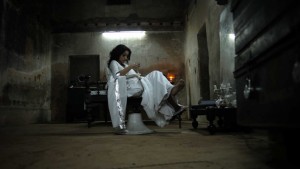 I had my reservations. When I went on set, Q showed me the room of the ‘Queen’, and told me to chill there while they shoot another scene nearby. I don’t know if you should be recording this now — [laughs] but they smoke up on set regularly. I didn’t realise that, and soon enough, I was stoned with the fumes. I wondered why I was forgetting my lines. I had prepared Tagore’s lines so sincerely. I didn’t want to let my parents down; Bengali films are more important than any others I do. Then I started to feel sleepy. I was using a glass of grape juice as a prop for the scene, so I just lay down and began to think about how I’d handle it. I fell asleep. I woke up just as the glass was about to fall, with a jolt, and realised that the camera was already rolling. The scene was on. I gathered my wits and went about it immediately, and finished the scene. It ends with me running out of the corridor and hallucinating about a war that I had fought in the past. Nobody yelled “cut!” by the time I ran out of the frame.
I had my reservations. When I went on set, Q showed me the room of the ‘Queen’, and told me to chill there while they shoot another scene nearby. I don’t know if you should be recording this now — [laughs] but they smoke up on set regularly. I didn’t realise that, and soon enough, I was stoned with the fumes. I wondered why I was forgetting my lines. I had prepared Tagore’s lines so sincerely. I didn’t want to let my parents down; Bengali films are more important than any others I do. Then I started to feel sleepy. I was using a glass of grape juice as a prop for the scene, so I just lay down and began to think about how I’d handle it. I fell asleep. I woke up just as the glass was about to fall, with a jolt, and realised that the camera was already rolling. The scene was on. I gathered my wits and went about it immediately, and finished the scene. It ends with me running out of the corridor and hallucinating about a war that I had fought in the past. Nobody yelled “cut!” by the time I ran out of the frame.
I discovered that it was quite a refreshing way to work. We were already instinctively in that moment. That’s Q for you. You know how the cliche goes, but it’s truly where I learned not to judge a book by his cover. He may be edgy and risqué that way, and we may be very different from one another (and this goes for most filmmakers), but we have far more in common than we recognise. I’d work with him again, even if I don’t understand his scripts. I’d like to be part of his vision; he, too, must have made an effort to understand my uptight world as much as I tried to understand his. As you start working with them, you realise there is curiosity and mutual respect for each other’s worlds; you don’t have to like the same things, but there is an unsaid agreement, one that helps to explore the other to give your absolute unconditional best. As actors, you fall in love with your directors. And I don’t mean the ‘page 3’ hookups — it is a director’s medium, so when he/she gives you so much of themselves, you give everything of yourself to make that vision come to life. There are times when we do work just for the money, and that love becomes difficult to find, but I suppose we have to know where to draw the line. Otherwise, you start changing in a way you won’t like.
Many of us were in awe of your performance in Anup Singh’s Qissa. How did you go about preparing for the role of Kanwar Singh — a girl brought up as a Sikh boy by her partition-affected father (Irrfan Khan)?
With Qissa, the most important factor was time. I had 9 months, because the film got delayed, including seven months of Punjabi classes, swimming, driving. Irrfan used to joke about, asking me if I had learned anything in life at all before the film. It was like being in school for those months. We all naturally like to do things fast, but we don’t realise how important an ingredient time is. When you give something time, the way it manifests is beyond simple efficiency.
Secondly, Anup is the kind of director who won’t exactly tell you what to do. He will give you some hints. He believes that you will discover it yourself through them. It’s a gamble, this teaching technique. He won’t lead you towards the right or wrong answer; he really trusts and respects that you will eventually find an answer. He kept asking me to watch two of Dilip Kumar saab’s films, Tarana and Aan. Those were his only references for my role, which I got out of him after pestering him constantly. He also tends to speak in riddles and poetry (like Q). He’d call me after I watched them. I told him there were mannerisms I could pick up — the way he takes a handkerchief, wipes his hands, folds it completely, puts it back in his pocket and buttons his shirt. He always finishes every action he starts. He doesn’t let sentences trail off either. He is very meticulous about his movements, as if the sanity of his world depends on completing these actions. It was something I wanted to take, for Qissa. Anup readily agreed, but asked me to watch it again. I knew that there was something else he wanted me to find. This was a day before the shoot. I was desperate by then, because I was convinced that watching it again wouldn’t really help at the last moment. In passing, I just mentioned that there was one thing I noticed, but perhaps couldn’t use for Qissa: Dilip ji has this smile that he uses when he is disenfranchised or humiliated, the kind he’d hide and mask his true feelings with. I didn’t think I could use this smile because Qissa was a serious film; does Kanwar Singh smile at all? Anup finally told me that it was exactly what he was hoping I’d discover.
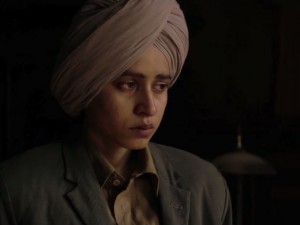 What if I had not found out? “It would have been a different film,” he said. He is a wonderful teacher. I had come to respect Anup so much over those seven months that I’d always try to do what he asked or hinted at, because I knew I could grow further if I did. He told me once to remember that Kanwar had a private as well as a public face, and to play with the differences between both. All this together helped me create a character. It happened over time, so gradually that it didn’t feel like I was trying to wear clothes that don’t fit me. I think it was a big risk for him to give a non-mainstream, coming-back-from-hiatus actress like me a role like that. I felt so much in debt, and I wanted to do everything I could to repay that.
What if I had not found out? “It would have been a different film,” he said. He is a wonderful teacher. I had come to respect Anup so much over those seven months that I’d always try to do what he asked or hinted at, because I knew I could grow further if I did. He told me once to remember that Kanwar had a private as well as a public face, and to play with the differences between both. All this together helped me create a character. It happened over time, so gradually that it didn’t feel like I was trying to wear clothes that don’t fit me. I think it was a big risk for him to give a non-mainstream, coming-back-from-hiatus actress like me a role like that. I felt so much in debt, and I wanted to do everything I could to repay that.
I remember another incident: There’s a scene where Umber (Irrfan) is attempting to rape his “daughter-in-law” Neeli (Rasika Dugal). Besides him, Neeli is the only person who understands and loves Kanwar unconditionally. For me, to see one person you love hurt another person you love was bizarre; I have to see him harming her, and be confused about the whole thing, then go and get a gun to shoot him. All in one scene. How do you access emotions that arise when you see your father rape someone? We kept trying, and it wasn’t working. We did many takes. The anxiety built up. I apologised to Anup. He assured me it was okay, and that he’d have to figure out the next scene because we were losing time.
He then pointed to a Peepal tree, and asked me to look at it. I wondered if he’d become all poetic and ambiguous again. Just tell me what to do, I pleaded. He asked me if the leaves were moving. They were, and so he told me to “just choose a leaf that calls out to you, and keep looking at it.” I was in over my head by then. The breeze was gentle. I noticed this one leaf that was almost falling. I kept looking at it. Finally, the leaf just drifted away from the branch. During that period — I don’t know how long — I was witness to the association between the leaf and the tree, and could decide whether I could be part of the tree or not: Whether I let go of my source of life, or whether I give in to this force that is asking me to remove itself. When he called ‘action’ again, I felt like I was shaking like that leaf, just looking at what my father was doing. That experience of watching gave me the confidence to make a choice between the tree and being free. I surprised myself, and if you’re surprised as an actor, the audience will be surprised when they watch you in the moment. They discover just like you do. If you were simply efficient, they’d say you were a good actor and you did well. But the true pleasure is in discovering a moment like this. All that waiting becomes worth it, even more than when you’re praised and appreciated for your work.
This is when the conviction becomes stronger. It becomes okay to be who I am, and wait for the filmmakers I’d like to work with. They will sense the sincerity and desire eventually, and maybe they will come to me. It’s important to become that child, to offer everything to your craft. Instead of being cynical about the system, it’s better to surrender yourself totally when you do have work. They don’t want a resentful person either. Over the last year, I’ve realised too that everyone does work that they think is good. Nobody makes a bad film knowingly. All the judgments are what you think it is. The more I can be open to seeing what I like about the world, rather than focusing about what I don’t like (clans, closed groups), the sooner I can make progress. How else must I have ended up at YRF (for the short film) almost 15 years into my journey? It was surreal in its own way. I’m happier with this approach.
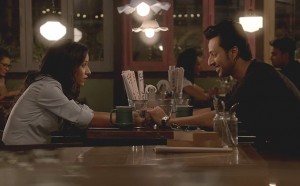
YRF’s ‘Love Shots’
What are the kind of films you really want to do? A particular style, genre?
My husband would love it if I did comedy. He is a very funny person, but he isn’t an actor. He watches all my films, probably gets bored, and asks me why every one of my roles are life-and-death serious, and to do something lighter once in a while [laughs]. Laughter is profound in its own way. But I haven’t been approached for such roles. Rohan Sippy did this web-series pilot ( that hasn’t released yet), where I got to play a comedic character. So, for me the journey has started. There was also Rajat Kapoor’s play, Macbeth, where he does it through clowns. I’ve pushed myself into these experiences because I want to discover my funny bone. It won’t be served to me on a platter. And I’m in the mood to explore romance, as well. I fell in love a few years ago, and I’m married to that man. That whole world was so inaccessible to me before. It would be nice to do something like that now.

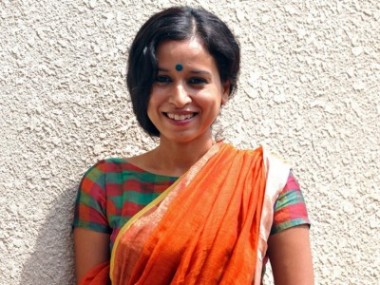

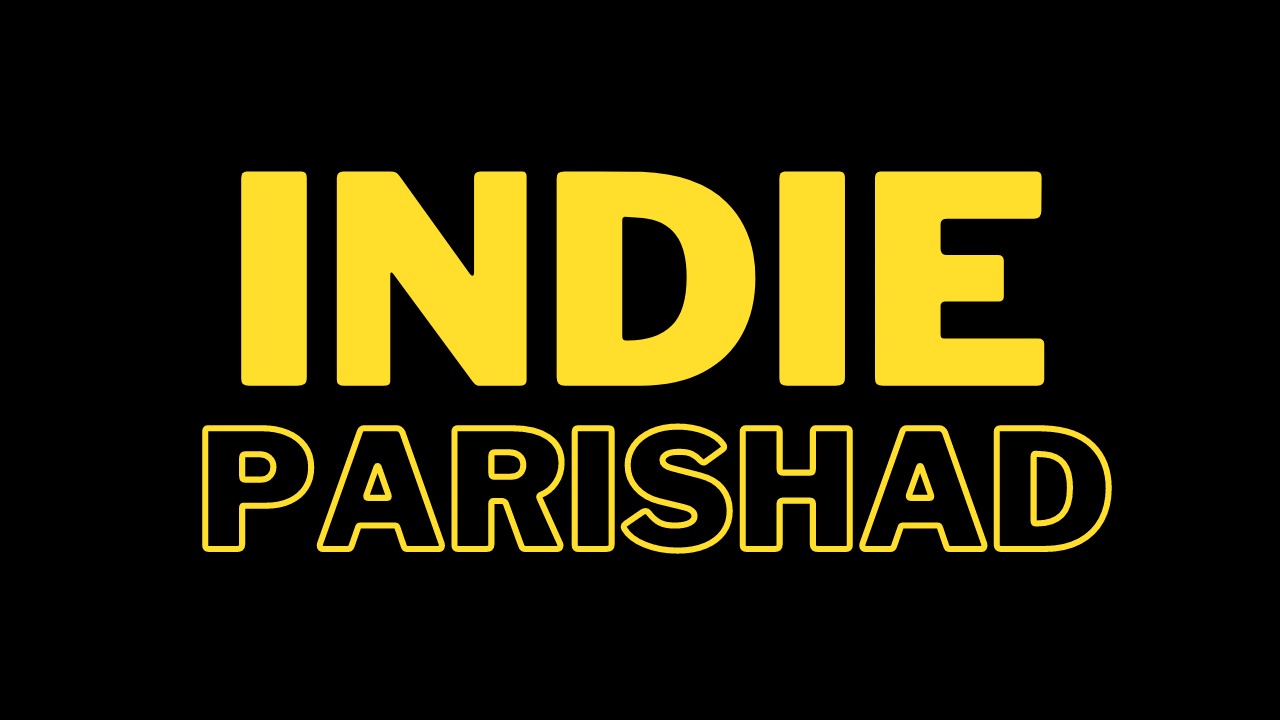
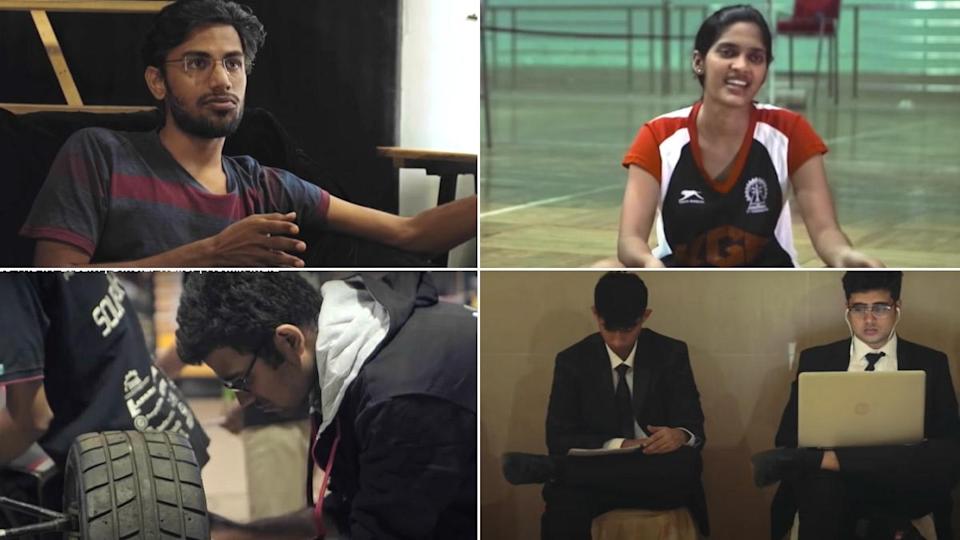
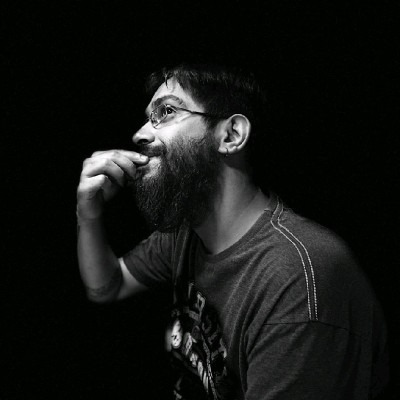



Leave A Comment
You must be logged in to post a comment.